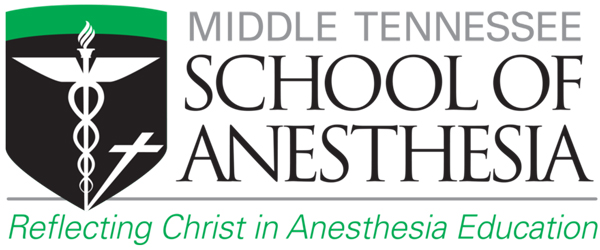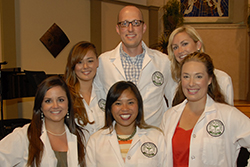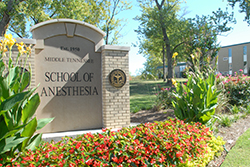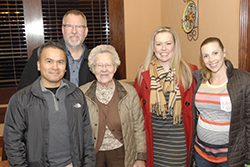October 1, 2023 | 7:30 am
Essentials of Ultrasound-Guided Regional Anesthesia Cadaveric Workshop
Sunday, Oct. 1, 2023 — SOLD OUT
7:30 a.m. – 5 p.m.
Cost: $950
MTSA alumni can qualify for a discount by contacting terry.owens@mtsa.edu prior to registering for the workshop.
An alumni discount cannot be issued after registering for the workshop.
Location: MTSA Campus, 315 Hospital Drive, Madison, TN 37115
MTSA’s Essentials of Ultrasound-Guided Regional Anesthesia Cadaveric Workshop is a hands-on training course that will benefit any provider who performs regional anesthesia in their clinical practice. The curriculum focuses on ultrasound-guided nerve blocks commonly used in the perioperative management of pain. Prior to attending the workshop, participants are expected to complete the associated online course covering the basics of ultrasound and the essential components of each block.
Blocks taught during the workshop include:
- Upper Extremity
- Interscalene brachial nerve block
- Supraclavicular nerve block
- Infraclavicular nerve block
- Axillary plexus nerve block
- Lower Extremity
- Femoral nerve block
- Pericapsular nerve group (PENG) block
- Fascial Iliaca block
- Adductor canal Block
- Popliteal block
- Truncal
- Transversus abdominus plane (TAP) block (subcostal and lateral approaches)
- Pectoralis (PECs) I & II blocks
- Erector spinae nerve block (thoracic and lumbar)
An attendee-to-faculty ratio of 4:1 maximizes the time learning all aspects of regional anesthesia, with stations addressing basic ultrasound function and needling skills, live model scanning, and cadaveric procedural training. In addition, attendees receive cadaveric dissection instruction from a trained anatomist.
Approximately six weeks prior to the course, participants will receive an email with instructions on how to access the online content, which includes six hours of lecture, a post-test, and course evaluation. Participants who complete all the content will receive 8 CE credits in addition to the 8 CE credits for attending the workshop and completing the evaluation.
This program has been prior approved by the American Association of Nurse Anesthesiology (AANA) for 8.00 Class A CE credits; Code Number 1042378; Expiration Date 10/01/2023. The AANA designates this program as meeting the criteria for up to 2.00 CE Credits in pharmacology and therapeutics. The online part of the program has been prior approved by the AANA for 8.00 Class A CE credits; Code Number 1041436; Expiration Date 2/9/2025.
Please dress comfortably; scrubs are the preferred attire for the workshop. Protective gowns, hats, masks, shoe covers, and gloves will be provided to all attendees. The registration fee includes lunch and afternoon snacks.
CANCELLATION POLICY: If you are unable to attend the workshop, you are eligible to attend a future course if you cancel at least 30 days prior to the scheduled course date. You can apply your registration fee to a future workshop. We require 60 days notification of the future workshop you plan to attend.
COVID Considerations: Middle Tennessee School of Anesthesia is committed to providing a safe and healthy environment for learning. Although not mandatory at this time, attendees are encouraged to wear masks during the lab, and when working with cadavers. Masking requirements can change at any time at the discretion of the course coordinator.
For more information, contact Terry Owens at (615) 732-7856 or terry.owens@mtsa.edu.
Course Coordinator: Christian R. Falyar, DNAP, CRNA, FAANA is the Director of the Middle Tennessee School of Anesthesia’s Acute Surgical Pain Management Fellowship. As a former board-certified sonographer, he has been involved in ultrasound training and education for over 20 years. He has a diverse anesthesia background, working both in independent private practice and serving on faculty at several schools of nurse anesthesia. He most recently served at the Assistant Director of the Nurse Anesthesia Program at Duke University, in Durham, NC. He has been published in numerous peer-reviewed journals, presented at the local, regional, national, and international level, and currently sits on the editorial board of the AANA Journal.








